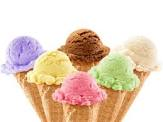 I wrote a blog post in January called Something the Social Worker Said. Essentially, it explored the issue of self-knowledge, but I remember the discussion I had that prompted the piece in the first place; starting with my question about the importance of hope to an ailing patient and ending someplace so different, as the blog post clearly demonstrated. I’m not sure why I let the topic of hope go so quickly; how I got so distracted. I also remember words about the complexity of the issue and how it meant different things to different people, making it difficult to discuss on equal footing. For some reason, I let that go, too. Apparently I had other priorities at the time. But lately I’ve come across so many references to the importance of hope to human survival, and just as many fascinating approaches to the topic from scientists, psychologists, anthropologists, and even social activists and futurists, that I couldn’t resist sneaking back for another look at it on the blog.
I wrote a blog post in January called Something the Social Worker Said. Essentially, it explored the issue of self-knowledge, but I remember the discussion I had that prompted the piece in the first place; starting with my question about the importance of hope to an ailing patient and ending someplace so different, as the blog post clearly demonstrated. I’m not sure why I let the topic of hope go so quickly; how I got so distracted. I also remember words about the complexity of the issue and how it meant different things to different people, making it difficult to discuss on equal footing. For some reason, I let that go, too. Apparently I had other priorities at the time. But lately I’ve come across so many references to the importance of hope to human survival, and just as many fascinating approaches to the topic from scientists, psychologists, anthropologists, and even social activists and futurists, that I couldn’t resist sneaking back for another look at it on the blog.
I’m certain it all started when I read a quote by John F. Kennedy recently that follows: “When written in Chinese the word ‘crisis’ is composed of two characters; one represents danger and the other represents opportunity.” That discovery came close on a theory I’d been evaluating by Dr. Barbara L. Fredrickson that hope really shines in importance when a crisis looms large, opening the door to creativity in our lives we might never have accessed any other way. Both seem to be making the same point, and I was particularly intrigued by the idea that creativity was tapped into under the stress of the crisis with hope playing an important role. I’ve been fascinated by the diagnosis of components contributing to creativity for a long time, and wondered more about the issue of crisis and hope joining forces to create something special through mental willpower to attain a goal. All of a sudden, I saw the dynamic force that’s necessary for creativity as the optimism needed to achieve a goal. Psychologist C.R. Snyder has named this ‘determination to achieve’, a person’s “Hope Scale”—an actual measurement of their hope.
Currently, I’m part way through Laura Hillenbrand’s latest biography, Unbroken, and I can’t escape wallowing in the power of hope to save lives, lead others, change existing conditions and shape opinion. Certainly her narrative supports the crisis theory of hope and creativity, but it also simplifies the structure of hope just when you’d expect it to get more complicated. That seems to be a recognizable skill of Ms. Hillenbrand’s writing and one I greatly admire. Her description of protagonist Louis Zamperini’s optimism about his own ability to conquer hurdles in his life, specific or general, shows how an outlook of specific and general hopefulness is necessary to the survival of those in the apex of crisis. She’s so clear about how hope can’t be ‘given’ or ‘taken’, but must be a permanent and practiced condition in each life, that one suddenly sees with clarity how simple the concept of an optimistic life really is. The attitude of hopefulness has to be pre-existing, or at the very least appreciated and practiced before the creativity and goal achievement can triumph.
Robert Mattox, a social activist and futurist, has written about a social-change theory based on the power of hope to leadership. I’m convinced that it can be applied to any goal where the dynamic tension becomes the power to achieve.
“Can you take the time to drive me to the new doctor?” my husband asked my son.
“Dad, I’ll drive you to Chinatown for ice cream if it’s what you want,” my son replied, inferring that whatever his father needed to get well was something he’d support. I’ll admit that ice cream in Chinatown might not be on my hopefulness scale, and yet I’m certainly learning to keep an open mind. Every creative route is worth pursuing as long as you believe in it.

Beautiful, and so insightful! I’ve long believed hopefulness and attitude (or the reverse) are choices we make each and every day and not something that either happens to us or doesn’t. As an aside, ice cream makes me very hopeful…..and happy! xo